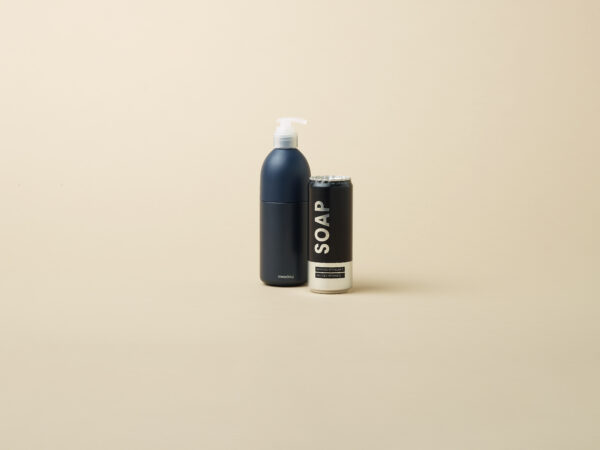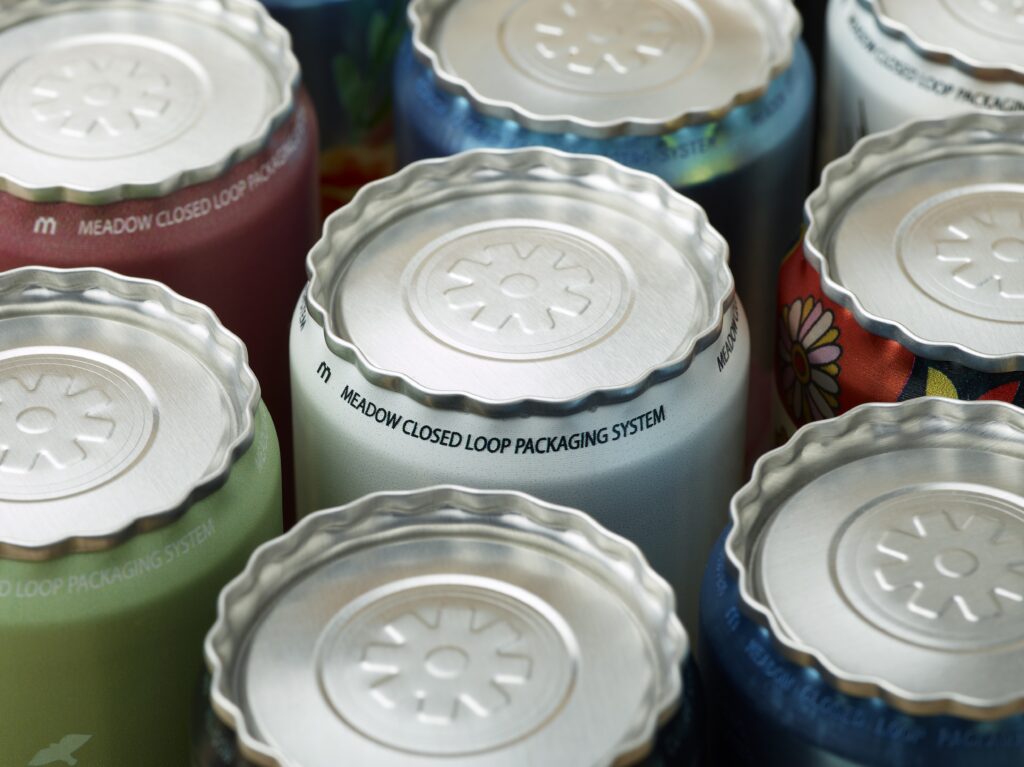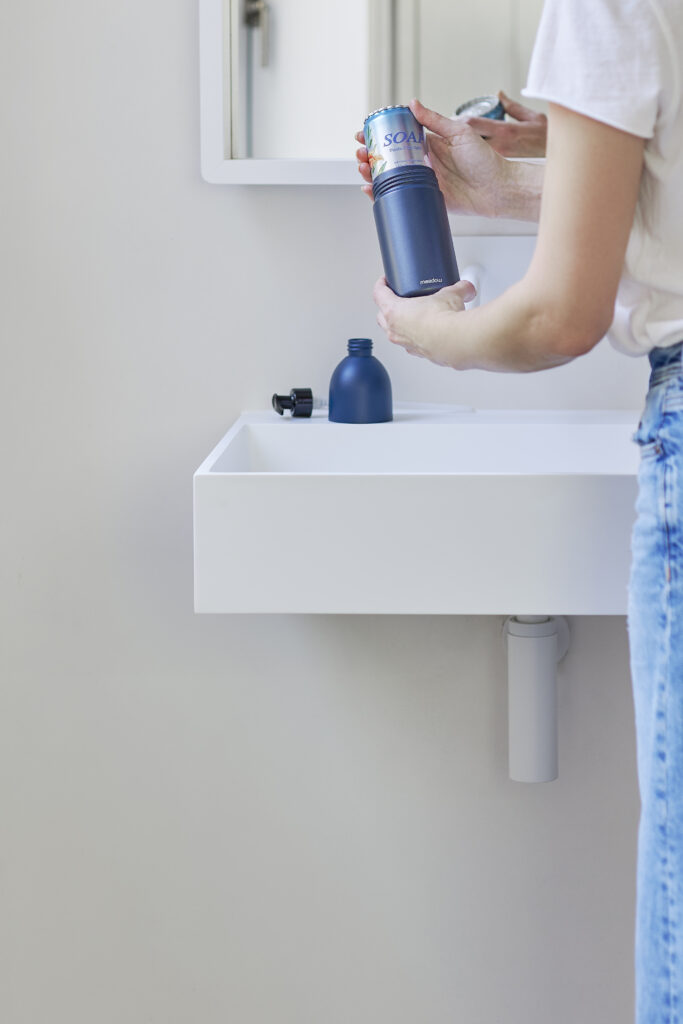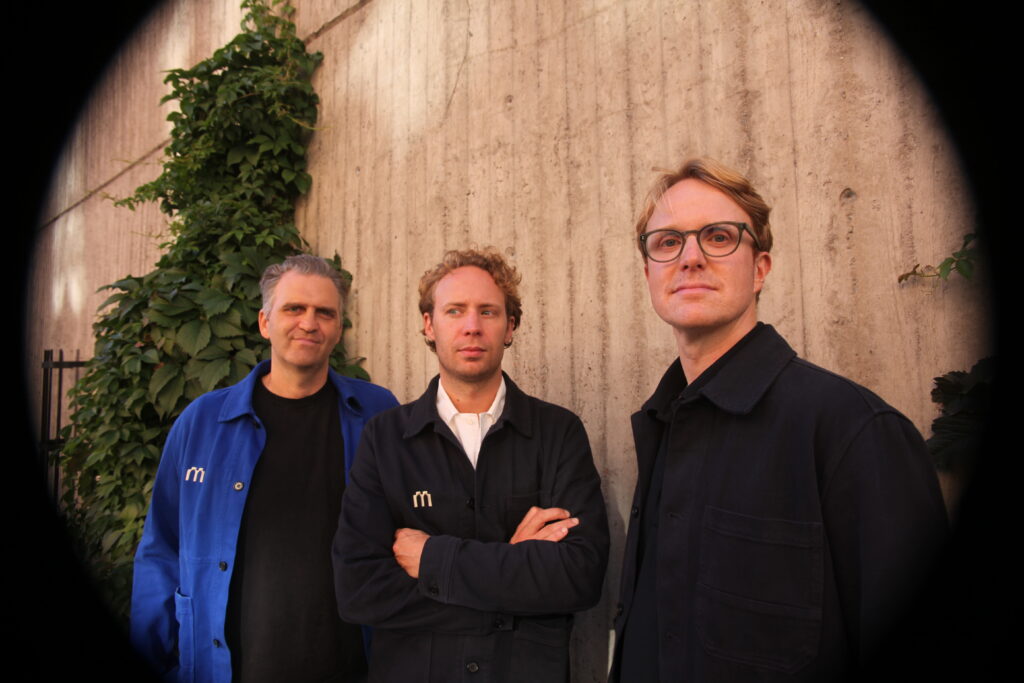 Back
Back
Replace plastic packaging? Yes we can
Swedish startup Meadow lets consumer-goods companies phase out plastic containers — with help from the mass-recycled aluminium can. Its team demonstrated its visionary packaging design at 🔥THE HEAT 2024.

BY JOE ROWAN, September 4 2024
THE HEAT, VOYAGERS.io’s first-ever climate-tech festival, took place on Friday September 20 2024 at the extraordinary Harwell Science and Innovation Campus in Oxfordshire.
THE HEAT is a hands-on, practical, mind-expanding, friendship-building, exploratory, curiosity-led, science-based, creative, artistic, participatory, decentralised, experimental, edgy, live, risky, urgent and unpredictable gathering of the talented people working on climate technologies. THE HEAT is not a conference. Don’t expect dull panels or awful coffee. Instead, come to make new friends, experience science in action, learn and share your knowledge, inspire and be inspired. Bring your most engaged and curious festival mindset.
Swedish startup Meadow lets consumer-goods companies phase out plastic containers — with help from the mass-recycled aluminium can. Its team demonstrated its visionary packaging design at 🔥THE HEAT 2024.
🧠 Learn more about Meadow in our article below and at https://meadow.global/.
The companies making your shampoo and washing-up liquid have a problem: they’re under enormous pressure to drop plastic packaging, but they need a low-carbon, easily recyclable alternative that preserves what’s inside — and can be customised with the pumps, sprays and whatever else the consumer expects.
A small team of innovators in Stockholm has designed a brilliantly simple solution. We already recycle aluminium cans at scale — not just because of the metal’s economic value, but because it’s 100 per cent recyclable infinitely, and takes 95 per cent less energy than making aluminium afresh. So why not find a way to replace plastic containers with modular aluminium refills that can be easily twist-connected to a reusable dispenser?
Meadow’s Red Dot Design Award-winning, patented packaging technology is based on a standard aluminium drinks can that contains the product refill — but with a serrated can lid, called a “Daisy Top”, that can quickly be twisted into the brand’s preferred dispenser. Once you’ve used the product, simply recycle the can and replace it with a new refill. No plastic to throw away — and a fraction of the carbon emissions for brands facing consumer and regulatory demands for change.

“The idea for Meadow came from becoming obsessed with the waste crisis in the world,” explains Peder Stubert, a cofounder of the company. Along with his cofounder Victor Ljungberg, Stubert spent a year working on two previous ideas to solve the problem, focusing on helping people to recycle more easily. They then realised that most of the waste was plastic. “That was when we met our third cofounder, Nick Paget. One day, when we had lunch, he drew up what became Meadow on a napkin and said, ‘Guys, I’ve been working on this idea for quite some time. What do you think?’.”
Paget had proposed a can filled with a cosmetic or a cleaning product that could be opened by a dispenser just by screwing it on to the can lid. A satisfying clicking sound lets you know that the can and dispenser have been securely connected.

But why aluminium cans? “It’s infinitely recyclable, and can be recycled using very little energy, unlike glass, for example,” Stubert says. “It is also the most collected packaging in the world. You can throw a can out of the window anywhere, and someone will pick it up because there is a second-hand market for it. There is a universally accepted value around the can.”
Since its founding in 2020, the company has grown to around 20 workers, split between its headquarters in Stockholm and its R&D studio in London. It has raised more than $10m in funding — from strategic investors such as Ball Corporation, the world’s largest can-maker; Stefano Volpetti, a former vice president and general manager for beauty and haircare at Procter & Gamble; and Michael Treschow, former chairman of the board of Unilever; as well as the VOYAGERS Climate-Tech Fund. The company is in discussion with the world’s biggest FMCG (Fast-Moving Consumer Goods) companies to introduce the format to their product ranges. Meadow does not make the cans or dispensers, but instead licenses its technology into the supply chain and then presents the product to clients.
Stubert, 43, previously worked in mergers and acquisitions for Deutsche Bank in London before co-founding Virtusize, virtual-fitting-room software that resolved the problem of not being able to try on clothes when you shop online. Stubert worked on it for seven years, before it was acquired by the Japanese arm of global design company IDEO. Ljungberg, 35, Meadow’s CEO, brought his experience taking the digital-media company Splay Networks from five to 120 people. Paget, 42, had cofounded The Polyfloss Factory, which invented a machine inspired by the process of making candy floss to recycle plastic waste locally.

Meadow only entered the commercialisation phase of its designs around eight months ago, and plans to begin pilots from the end of this year. “The vision is to create a circular packaging standard, so in five to ten years, we aim to become a standard for the FMCG industry,” Stubert says.

Learn more about Meadow at Meadow.Global.